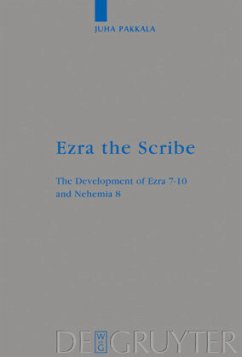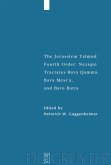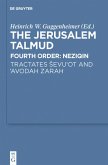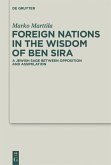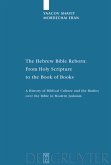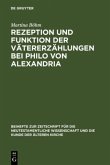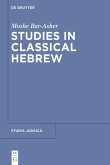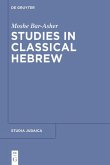This monograph investigates the literary development of Ezra 7-10 and Neh 8. With a detailed literary critical analysis, the investigation shows that the text was produced in several successive editorial phases for at least two centuries. Thus the final text cannot be used for historical purposes. The oldest text emerged as a short narrative, entirely written in the third person. It describes how a Torah scribe (Schriftgelehrter) called Ezra came from Babylon to Jerusalem to reinstate the written Torah. In the later editorial phases, Ezra's role was transformed from a scribe to a priest who brought cultic vessels to the Temple. The editorial development reveals that the text was originally influenced by Deuteronomy and the (Deutero)nomistic theology. Later, it came under priestly and Levitical influence.
"Die Arbeit ist als ein sehr wertvoller Beitrag [...] anzusehen."
Orientalische Literaturzeitung 2/2006
"A comprehensive redaction-critical approach to reading the so-called 'Ezra Material'. Pakkala's analysis contributes greatly toward future reevaluations of the component parts of Ezra-Nehemiah, their relationship to each other, and their functions within the final product as a whole."
Steven Schweitzer in: Biblica 2/2006
"Die Arbeit ist als ein sehr wertvoller Beitrag [...] anzusehen."Orientalische Literaturzeitung 2/2006 "A comprehensive redaction-critical approach to reading the so-called Ezra Material . Pakkala's analysis contributes greatly toward future reevaluations of the component parts of Ezra-Nehemiah, their relationship to each other, and their functions within the final product as a whole."Steven Schweitzer in: Biblica 2/2006
Orientalische Literaturzeitung 2/2006
"A comprehensive redaction-critical approach to reading the so-called 'Ezra Material'. Pakkala's analysis contributes greatly toward future reevaluations of the component parts of Ezra-Nehemiah, their relationship to each other, and their functions within the final product as a whole."
Steven Schweitzer in: Biblica 2/2006
"Die Arbeit ist als ein sehr wertvoller Beitrag [...] anzusehen."Orientalische Literaturzeitung 2/2006 "A comprehensive redaction-critical approach to reading the so-called Ezra Material . Pakkala's analysis contributes greatly toward future reevaluations of the component parts of Ezra-Nehemiah, their relationship to each other, and their functions within the final product as a whole."Steven Schweitzer in: Biblica 2/2006

